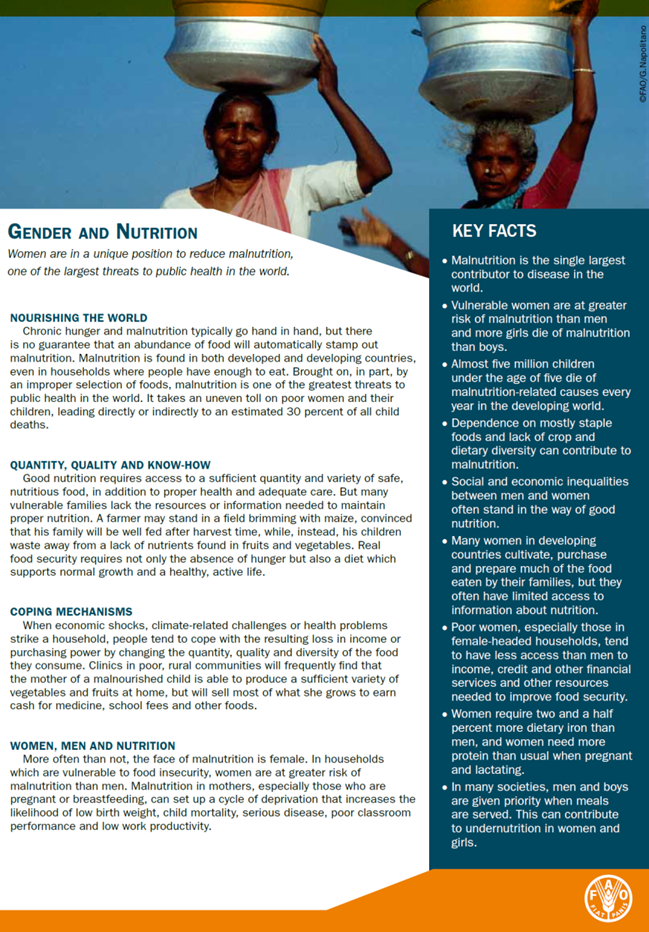Experts expressed worries that instances of poor nutrition during pregnancy could increase throughout Nigeria, following the United Nations...

Expertsexpressed worries that instances of poor nutrition during pregnancy could increase throughout Nigeria, following the United Nations' recent forecast of growing worldwide food scarcity in 2026.
They observed that the forecasts indicate a concerning future for vulnerable families, especially those having difficulty accessing essential nutrition, and mentioned that food insecurity could increase the risk for pregnant women.
In a recent report jointly published by two of its agencies, the Food and Agriculture Organisation and the World Food Programme, the UN stated that severe food shortages are worsening in 16 countries it refers to as areas with high hunger levels, such as Nigeria.
According to experts in women's reproductive health and nutrition, as reported by PUNCH Healthwise, poor nutrition during pregnancy can cause preventable issues that put both mothers and their babies at risk.
Experts associated poor nutrition during pregnancy with anemia, reduced birth weight, compromised immune function, and increased susceptibility to illnesses.
They mentioned that numerous women also experience delayed fetal growth and a higher likelihood of premature delivery, conditions they claim are becoming more common as economic difficulties continue to deteriorate.
The experts emphasized that these issues can lead to long-term effects for babies if not treated quickly.
In a special interview, Prof Aniekan Abasiattai, a Chief Consultant Obstetrician and Gynaecologist at the University of Uyo Teaching Hospital in Akwa Ibom State, stated that these forecasts from the UN could result in an increase in nutritional deficiencies during pregnancy in Nigeria.
He pointed out that although malnutrition during pregnancy is divided into undernutrition and overnutrition, both types can have harmful impacts on the mother and the child.
The professor stated, 'Because of the economic decline, the rate of malnutrition during pregnancy might likely rise.'
The obstetrician stated that inadequate nutrition impacts fetal growth, connecting poor dietary intake to a higher rate of spontaneous abortions.
The infant receives the majority of its nutrients from the mother. Therefore, if the mother is not properly nourished, it is clear that this will impact the baby, potentially leading to negative outcomes such as spontaneous miscarriages.
"It may actually result in premature birth. It can lead to delayed growth—known as intrauterine growth restriction—and, naturally, when there is a significant nutrient deficiency, it can result in fetal death. The baby may pass away within the uterus. It can also lead to stillbirths, among other issues," the professor stated.
Abasiattai emphasized that health issues arising from poor nutrition during pregnancy can significantly impact both the mother and the child.
"Proper nutrition is essential during pregnancy to reduce the risk of negative impacts on both the mother and the child," he stated.
The instructor stated that proper nutrition during pregnancy is among the most critical elements of prenatal care, noting that structured prenatal care and hospital births help keep mothers and babies healthy throughout the pregnancy and ensure safe deliveries.
"One of the key aspects of antenatal care involves weighing women during each visit. A woman is expected to gain a specific amount of weight each week starting from the early stages of pregnancy. Any deviation from this pattern signals the healthcare provider to conduct further examination, allowing for timely interventions. This approach also serves as a preventive strategy, focusing on addressing malnutrition or other nutritional deficiencies to ensure the woman stays in the best possible health and gives birth to a healthy baby," Abasiattai explained.
Additionally, a Public Health Nutritionist from Obafemi Awolowo University in Ile-Ife, Osun State, Prof. Beatrice Ogunba, stated that poor nutrition during pregnancy plays a role in the cycle of health issues passed from one generation to the next.
"The cycle of poor nutrition persists as undernourished girls mature into undernourished women, who then have babies with low birth weight," she stated.
Ogunba, a specialist in Breastfeeding and Complementary Feeding, stated that as the developing fetus gets all its nourishment from the mother, poor nutrition during pregnancy can lead to lasting changes in structure and function.
As she stated, a child's general health is notably and persistently affected by maternal malnutrition, continuing into adulthood.
Children whose mothers suffered from poor nutrition at birth frequently experience a weakened immune system, increasing their risk of developing recurring and serious illnesses like pneumonia, diarrhea, and measles.
"Maternal malnutrition is the main factor that predicts stunting and wasting in children. The physical and mental impacts of stunting cannot be reversed," she stated.
To ensure the best possible nutrition during pregnancy, dietitians recommended that pregnant women focus on early preconception care.
Starting antenatal care at an early stage will enable pregnant women to obtain guidance on proper Maternal, Infant and Young Child Nutrition, which will ultimately promote sufficient nourishment.
"An adequate supply of essential micronutrients, especially iron, folate, and calcium, is necessary throughout pregnancy. Women should have access to a Multiple Micronutrient Supplement during this period. There should also be consistent weight gain during pregnancy, depending on the mother's pre-pregnancy BMI. Additionally, mothers should follow the five-star diet to ensure a varied and balanced intake," the professor mentioned.
Provided by SyndiGate Media Inc. (Syndigate.info).


